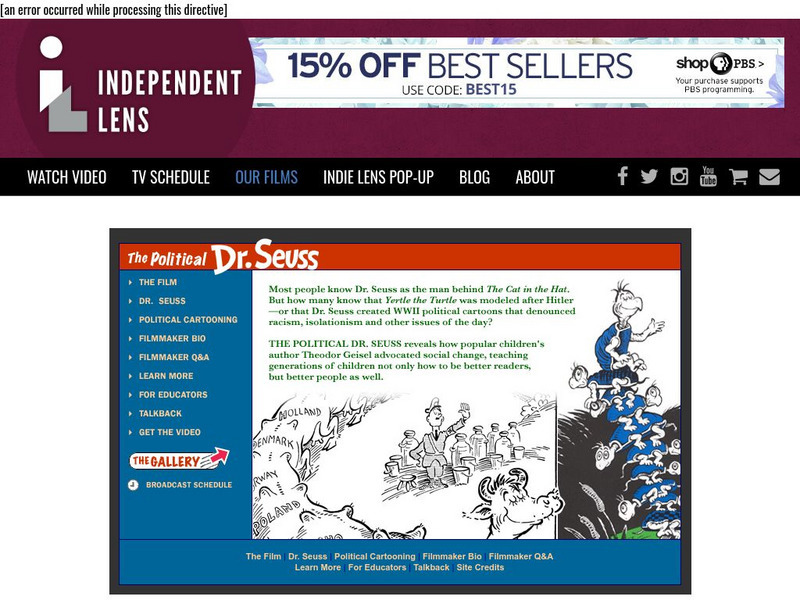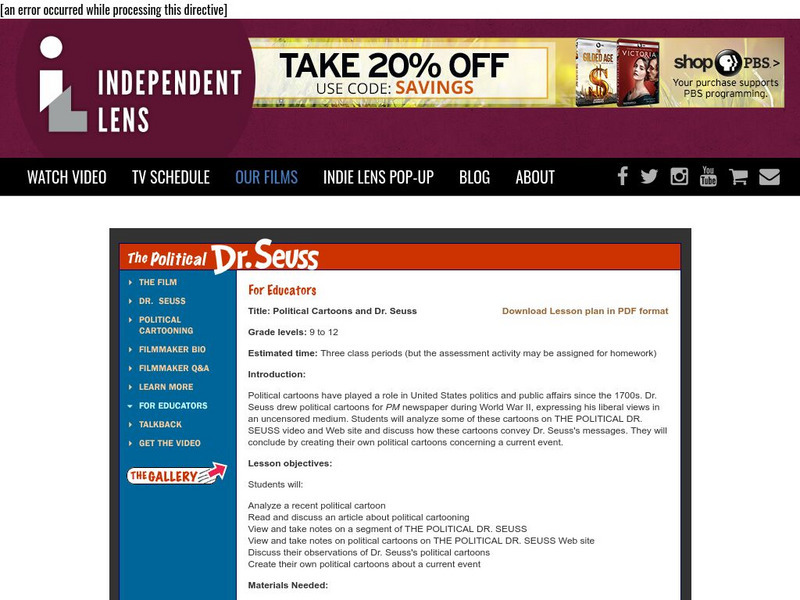Hi, what do you want to do?
National WWII Museum
Dr. Seuss and WWII
What famous children's author and illustrator created World War II political cartoons featuring such subjects as fascism, the war effort, discrimination, and the dangers of isolationism? The who in this story is Dr. Seuss, and what...
Curated OER
Dr. Seuss Political Cartoon Questions
In this primary source analysis worksheet, learners examine a political cartoon by Dr. Seuss about World War II and then respond to 5 short answer questions.
Curated OER
The Political Dr. Seuss
Students discuss the role political cartoons have played in U.S. politics and public affairs since the 1700's. They analyze some of the political cartoons Dr. Seuss drew during World War II and discuss how these cartoons conveyed his...
Curated OER
Cartoons for the Classroom: The Political Dr. Seuss
In this historical events worksheet, students analyze political cartoons by Theodor Geisel. Students respond to 2 talking point questions.
Curated OER
Political Cartoons and Dr. Seuss
Learners study political cartoons by Dr. Seuss. They create their own political cartoons on a current event.
Curated OER
Historical Lessons on Wartime and Race Relations
Students identify perceptions towards Asians widely held by the American public through the analysis of political cartoons from the 1940's. They recognize the ramifications of such perceptions on Asian American and Arab American.
University of California
Mandeville Library: Catalog of Political Cartoons
This site is from the Mandeville Special Collections Library that has political cartoons drawn by the famous Dr. Seuss.
PBS
Pbs: The Political Dr. Seuss
Behind some of your favorite Dr. Seuss characters are messages of social and political context. Explained here in detail are some examples of these types of works along with a biography.
PBS
Pbs Teachers: The Political Dr. Seuss (Lesson Plans)
Go directly to two lesson plans that help students explore how the cartoons of Dr. Seuss reflected the political and social issues of his day. Lessons also direct students to examine broader issues associated with political cartooning,...
Varsity Tutors
Varsity Tutors: Web English Teacher: Dr. Seuss Lesson Plans
What is your favorite Dr. Seuss story? Web English Teacher may be offering you resources to teach it right here! Also contains links to biographical information.














